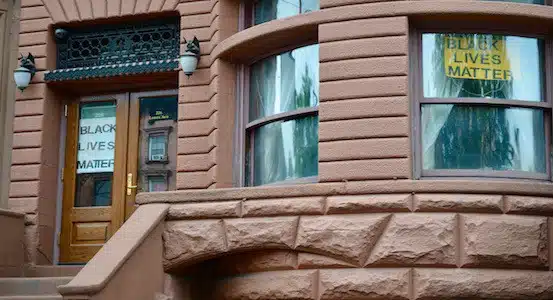Now more than ever, making your voice and views known, and protesting is so important to our democracy and the future of our country. The First Amendment to the United States Constitution protects your right to protest and assert your opinion, individually and as part of a group of demonstrators. Though protesting is especially vital now, it is also especially dangerous today. Knowing your rights, exercising caution, and understanding the limits of the law are imperative. In the wake of the pandemic, widespread unemployment, desperation, fascist elements in our national government and ineptitude in our local governments are a volatile backdrop for the demonstrations against police violence toward people of color and the death of George Floyd and so many others taking place around the country. Organized demonstrators with good intentions have been infiltrated by individuals and groups with bad intentions, fascist views, reactionary violent views or those intent on criminal mischief and larceny.
- Organize and stay with the group that is about the message and expressing their views.
- Your First Amendment rights of speech have the greatest protection in public forums. You can protest on the street; you can march on the sidewalk and in the street (so long as you do not block traffic) and you can do that without a permit. If you do not have a permit, the police are permitted to direct you to a certain location, the side of the street, etc.
- You do not have the right to go onto or enter private property; you can be arrested for trespass if you do that.
- Counter-protestors have the same rights as you. You may not like their message, but you need to keep it moving and avoid heated (sometimes turning violent) confrontations. This is not the way to get your message through.
- Follow the laws and the rules established for your own protection.
- Keep your phone and/or camera ready to record. You have the right to record interactions with police officers so long as you maintain a safe distance from the police and you do not interfere with what they are doing, even if you do not like what they are doing. Record it, take photos, but do not intervene. Police are not supposed to confiscate your phone or camera in these circumstances.
- The police are not supposed to break up a demonstration in a public forum unless there is a clear and present danger. If a dispersal order is issued, the police are required to give demonstrators a reasonable period to disperse. The police are also required to clearly tell you how much time you have and what will happen before they intercede after a dispersal order is issued.
- If you are stopped by the police, ask why you are being stopped, continue to ask if you are free to leave, never physically resist their effort to restrain you. If the police tell you that you are not free to leave, ask what crime you are charged with committing. Never consent to a search of your property, do not say anything at all to the police, other than your name and pedigree information and request a phone call to a lawyer.
Those are some basic rules. Though the rules are founded on the law, when you are in the middle of a demonstration, violence can erupt and the participants, police, protestors, infiltrators, and counter protestors may no longer follow the rules. Common sense is your best guide at the demonstration. Stick with a partner or group of trustworthy friends, avoid trouble, and get your message heard.
Related Posts
- Client’s Rights: Your Rights as a Law Firm Client
Did you know that New York law affords you with certain rights regarding the representation…
- New York Magazine – Legal Leaders 2020
Giordano Law Offices Personal Injury & Employment Lawyers is featured in the December 2020 edition…
- Giordano Law Offices Personal Injury & Employment Lawyers Press Coverage of Civil Rights Case: Troy Canales Autistic Teen Whose Rights Were Violated By NYPD
DNAInfo A rticle: https://www.dnainfo.com/new-york/20150708/fordham/nypd-officers-beat-autistic-teen-front-of-his-home-lawsuit-says#.VZ0UjC7vqIYABC News Article and Video of Interview: Bronx Family Suing NYPD After…


